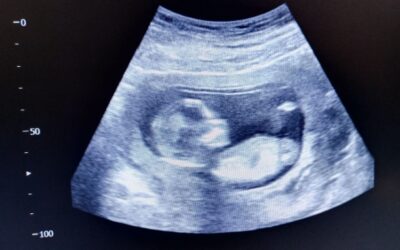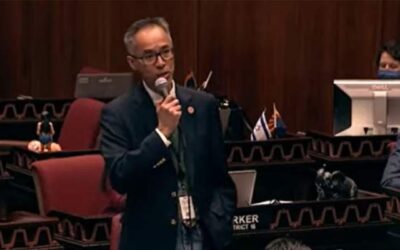By Terri Jo Neff |
As the Arizona Legislature considers a bill clarifying the right of a county to tabulate ballots by hand, the Arizona Court of Appeals has been asked to decide how many ballots can be audited by hand if a county uses a machine tabulator.
The question before the appellate court is whether Arizona’s 15 counties are restricted to performing a hand count audit of only a very small percent of machine tabulated ballots, or if a county’s Board of Supervisors (BOS) have authority to demand a higher audit percent—even 100 percent—of those ballots to check the accuracy of the electronic tabulation.
The issue dates back to October 2022 when the Cochise County BOS approved a Resolution to have County Recorder David Stevens conduct a hand count audit of all ballots cast in-person on election day at the county’s 17 voting centers. The Resolution was challenged in court by the Arizona Alliance of Retired Americans (AARA).
Cochise County came out on the losing end of the case, which cost taxpayers nearly $90,000 in attorney’s fees to AARA. Now, the matter is in front of the Court of Appeals, with the county seeking to be vindicated for its hand count audit plan.
AARA filed its answering brief to the appeal last week. It asks for the county’s appeal to be dismissed as moot.
“Not only is the 2022 election over, but the mandatory audits prescribed by law have been conducted, and the election results were canvassed and certified,” AARA’s brief argues.
But if the Court of Appeals decides to weigh in on the question of whether Cochise County had authority to order a full hand count audit – of the early ballots, election day ballots, or both – then AARA argues the answer is no.
“Appellants are only legally authorized to conduct hand count audits in accordance with these statutorily prescribed procedures and cannot require a hand count audit of all ballots,” the brief argues. “Hand count audits must start with small, random samples for a limited number of races, and expand only on an individual race basis and only if hand counts repeatedly differ from electronic tabulations by more than a designated margin for error.”
AARA’s brief ignores the policy issue of whether an expanded hand count audit process would be better than the current law it claims is controlling.
Cochise County has until April 17 to file a reply brief with the Court of Appeals. There is no deadline for when a ruling must be issued.
The supervisors in favor of the expanded audit were Tom Crosby and Peggy Judd, who took the position that “many voters” lacked confidence in the voting system. A 100 percent audit of in-person election day ballots was justified, they argued, to “enhance voter confidence.”
The Resolution passed on a 2 to 1 vote on Oct. 24, 2022. AARA and one of its local members sued the county the next week, seeking a court order enjoining, or barring, anyone from complying with the Resolution.
Judge Casey McGinley was brought in from Pima County Superior Court by Cochise County’s presiding judge to hear the case. McGinley ruled one day before Election Day that the county and Stevens could not engage in the expanded hand count audit.
McGinley went one step further, ruling that there could also be no full audit of early ballots.
According to McGinley, ARS 16-602(B) requires the audit of ballots casts at voting centers on election day to be “randomly selected.” Selecting 100 percent of those ballots from the start would render the statutory language and the mechanism for a limited expansion of the hand count audit superfluous, he noted.
McGinley further ruled that ARS 16-602(F) establishes 5,000 as the maximum number of early ballots which may be initially part of a hand count audit, despite contradictory language included in the EPM which states counties “may elect to audit a higher number of ballots at their discretion.”
In its appeal, the Cochise County defendants contend hand count audits based on a random sampling of ballots was intended to prevent election officials from auditing races for improper purposes. There would be no concern with how certain races were selected if 100 percent were audited, they contend.
If the Cochise County BOS loses on appeal, attorneys for AARA have asked for a new order requiring the county to pay the group’s court costs and attorney’s fees in connection with the appeal.
Cochise County taxpayers are also on the hook for the fees paid to the attorney for the supervisors and Stevens, including during the appeal.
Terri Jo Neff is a reporter for AZ Free News. Follow her latest on Twitter, or send her news tips here.








